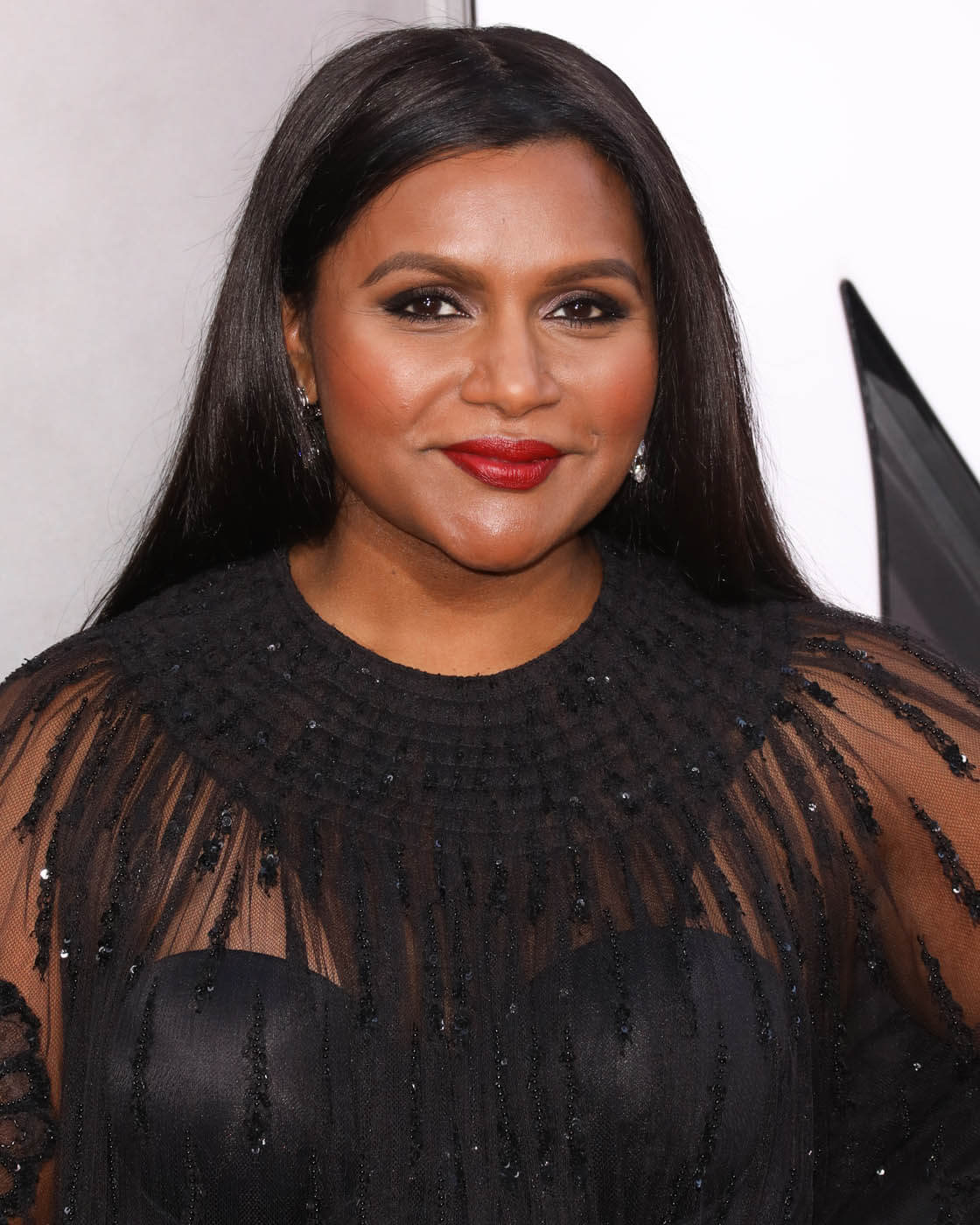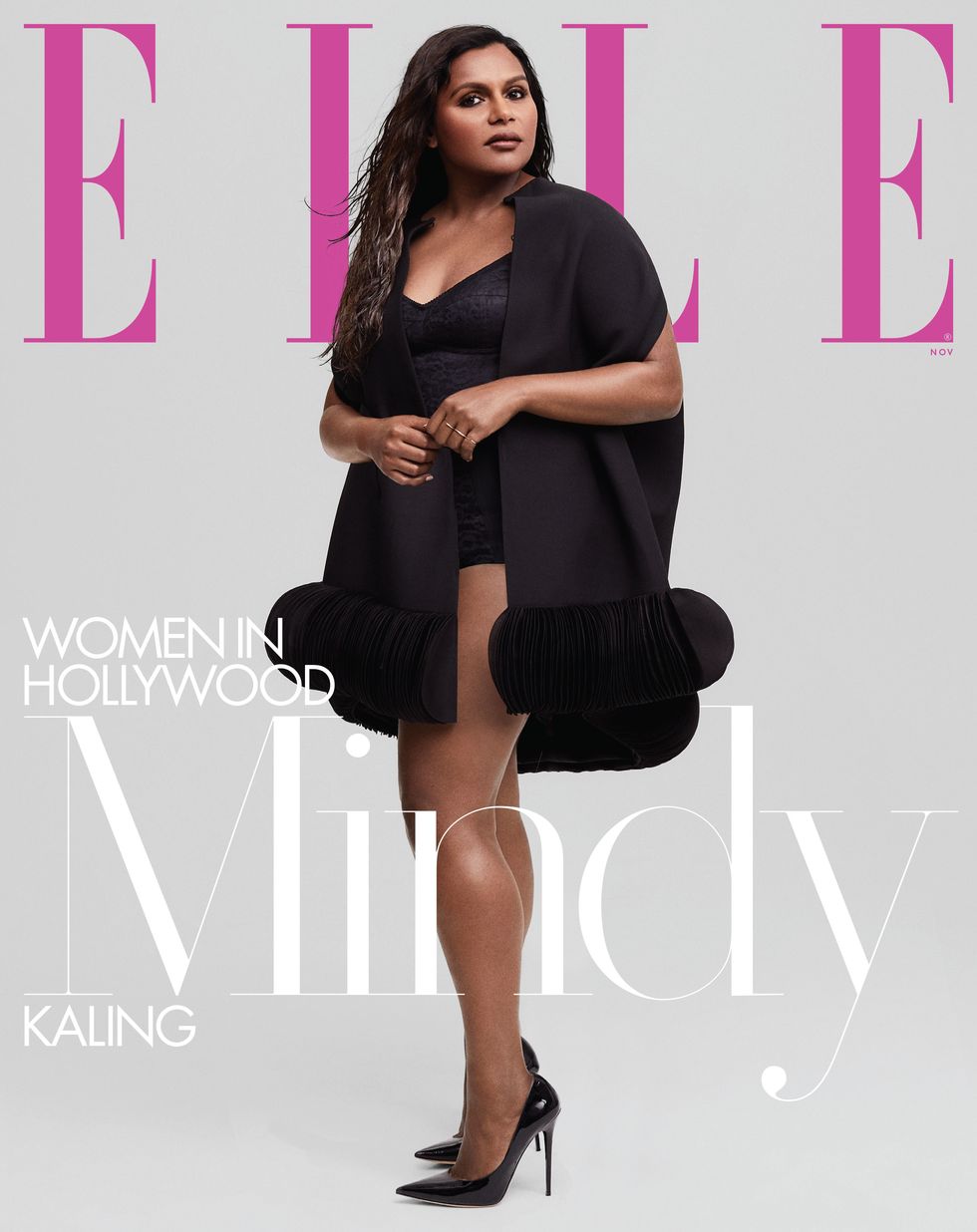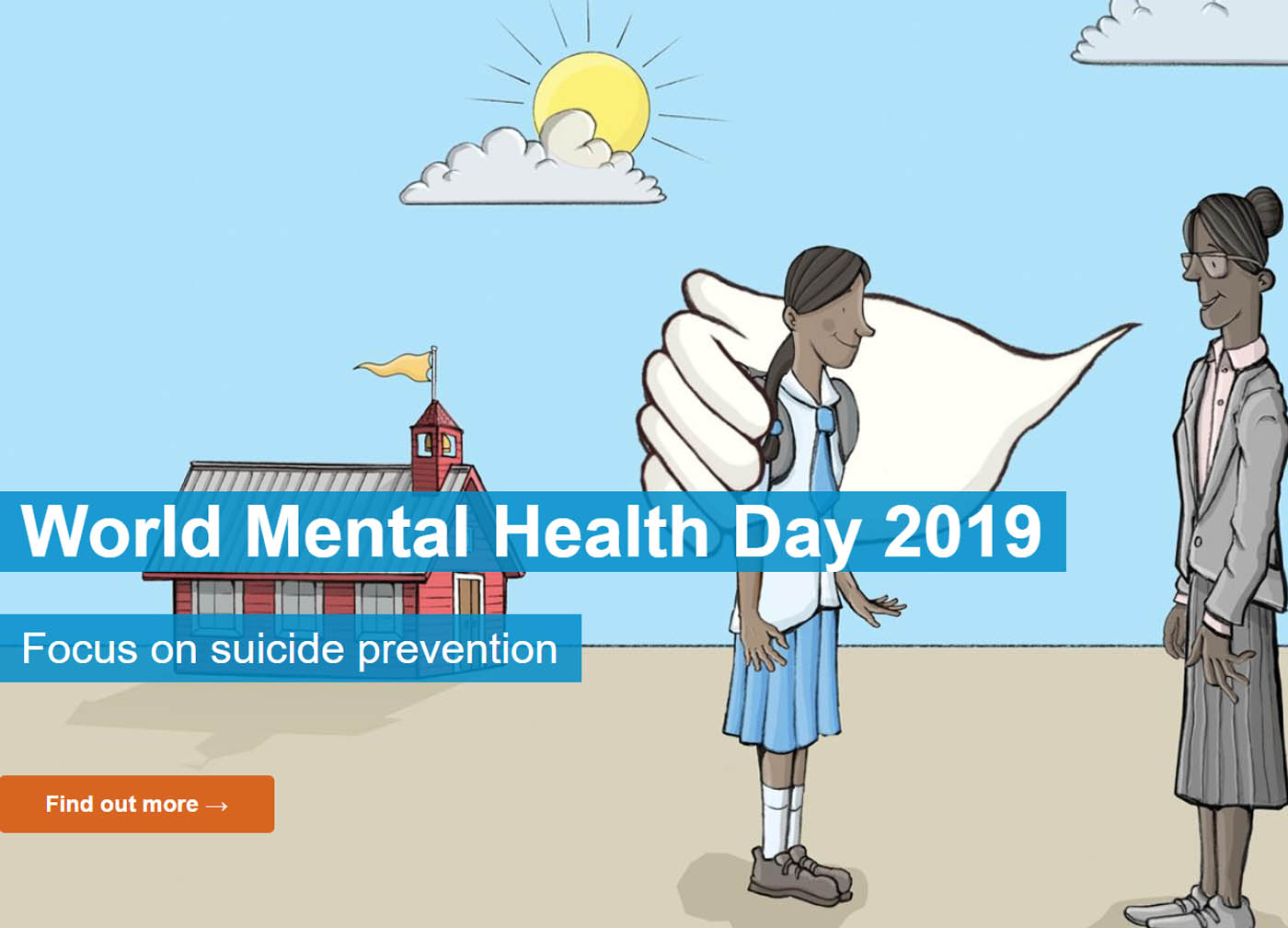Mindy Kaling Teaches Bullsh-t Detection



Yes, I intentionally styled that title to look like a new offering from MasterClass. I would take this class. We all should.
Yesterday, while everyone was focused on a certain other celebrity profile, Elle dropped their cover story with Mindy Kaling. It focuses, like many of her interviews tend to lately, on how she never aspired to be a role model for women or people of colour (Kaling has often underscored her desire to be a comedian and writer, full stop, without any qualifiers of ‘non-white’ or ‘non-male’) but explores how she’s coming to terms with it.
Kaling shares more than one anecdote about the systemic racism and sexism she’s experienced, including the time a security guard tried to kick her off the set of her own show, never imagining she could belong there – but it’s the one about an Emmy nomination for The Office that got a lot of traction yesterday:
Early on in her tenure at The Office, the show was nominated for an Emmy for Outstanding Comedy Series. Shortly after, the Television Academy…told Kaling that because there were too many producers on The Office, they were going to cut her from the list. She, the only woman of color on the team, wouldn’t be eligible for an Emmy like the rest of the staff. In order to receive her rightful recognition, she recalls, “They made me, not any of the other producers, fill out a whole form and write an essay about all my contributions as a writer and a producer. I had to get letters from all the other male, white producers saying that I had contributed, when my actual record stood for itself.”
Gross, in that kind of exhaustingly familiar way that everything is gross right now/forever, yes? Makes you want to throw up your hands all, welp, here we go again, but hey, Kaling got added to the list eventually, and is now super successful and thus got the last laugh, right?
YOU WOULD THINK.
When the LA Times picked up the story, they asked for comment from the Television Academy and their response was, essentially, “Nuh-uuuuhhh!” Or, more insidiously (and more typical of Hollywood), “Oh no, no, baby girl, you got it wrong, no. Don’t misunderstand, honey!”
“No one person was singled out,” an academy spokesman said in a statement to The Times. “There was an increasing concern years ago regarding the number of performers and writers seeking producer credits. At the time the Producers Guild worked with the Television Academy to correctly vet producer eligibility.”
“Every performer producer and writer producer was asked to justify their producer credits,” the spokesman added. [https://www.latimes.com/entertainment-arts/tv/story/2019-10-09/mindy-kaling-emmys-television-academy-office]
Raise your hand if your bullsh-t detector is ringing. Here’s where we get to the MasterClass part of things. I didn’t realize until now that there’s a smell test for whether someone’s story about discrimination feels right to you or not, but Kaling has helped me to see it.
Lesson One: If the accusation of discrimination feels impossible, or arbitrary, or ‘who would do that? It’s preposterous!’… it’s probably true.
After all… if someone was excluded from something for legitimate reasons, those reasons are usually easily accessible, verifiable, and transparent. If you fail to make the Olympics, for example, there are generally speaking a list of scores and a threshold everyone has to meet. You either see it or you don’t. Driving tests are another great example. There’s a quantifiable set of skills you need to show (or mistakes you’re allowed to make), and they’re right there in your peripheral vision.
But when you’re a credited producer, and someone says that ‘because there are too many producers’ (sorry, what? that’s not a thing) you have to prove your value in an essay, as opposed to something, oh, I don’t know, quantifiable, like the number of episodes on which you are credited? When someone complains about discrimination, and the ‘justification’ is vague and opaque and ultimately a decision is made based on someone’s opinion? I’m fine issuing a blanket statement that 99% of the time, it happens the way the aggrieved party said it did.
Which is what Kaling pointed out on Twitter, here and here.
Respectfully, the Academy’s statement doesn’t make any sense. I *was* singled out. There were other Office writer-performer-producers who were NOT cut from the list. Just me. The most junior person, and woman of color. Easiest to dismiss. Just sayin’. https://t.co/frT2pQUfLF— Mindy Kaling (@mindykaling) October 9, 2019
I’ve never wanted to bring up that incident because The Office was one of the greatest creative experiences of my life, and who would want to have an adversarial relationship with the Academy, who has the ongoing power to enhance our careers with awards? (1)— Mindy Kaling (@mindykaling) October 9, 2019
Oh, and when you’re telling this story to someone who goes, “Oh well maybe there were too many producers! Maybe you can only have a certain number!”, you can let them know that in the Outstanding Comedy Series category that year, The Office listed 12 credited producers, including Kaling (eventually). Of the other shows in the category – 30 Rock, Ugly Betty, Entourage, and Two And A Half Men – all but one had 12 OR MORE credited, and thus nominated, producers.
Which brings us to Mindy’s next incisive point.
Hey, @TelevisionAcad! I have been a proud member for years. I was the 1st woman of color nominated for writing a comedy script. Why not say “years ago we prevented a deserving woman of color from getting credit for her accomplishments. We’re sorry and it would never happen now.”?— Mindy Kaling (@mindykaling) October 10, 2019
Lesson Two: When trying to discover the motivation for discrimination, Follow The Butthurt
I’m sorry if that’s a bit crass or juvenile. I know some people don’t like that word. But I couldn’t think of another way to put it that would be as clear while also being truthful.
Members of TV and Film Academies and Guilds are necessarily people who are working professionals – or who were once. The juries and the juried are almost always known to each other on some level, and if you think this means favouritism and bias can run rampant, you’re absolutely right!
Moreover, though, time has made us forget how far outside the norm The Office was when it premiered in the mid-2000s. It bore almost no resemblance to the three-camera shows that had dominated network TV until then, and neither did its hybrid writer-performer-producers. So it stands to reason that if you were a certain type of old school member of the Guild, maybe not working as much as you’d like anymore, maybe even resentful of the deadpan comedy so different from the Frasier/3rd Rock/Everybody Loves Raymond type shows where – just maybe – you’d flourished more than you were now… you can see how there might be some resentment there.
And if there were, and you decided to ‘crack down’ on undeserving producers, well then, as Mindy says, you might go after the person who was ‘easiest to dismiss’, because it’s easy to justify in your mind – especially since you don’t have to justify it in any quantifiable way.
I want more. I want a dozen more of these lessons, but even as I say that, I realize that’s exactly what Mindy has been saying she doesn’t want. Nobody ever asks John Lithgow – or John Krasinski, for that matter – to highlight and explain systemic discrimination. Not that they could, probably, because the worst part of all of this is that Mindy’s super-resonant expertise, the iconic status she didn’t want, is due to being questioned and doubted and treated with skepticism throughout her entire career.
To read more from Mindy in ELLE, click here.



